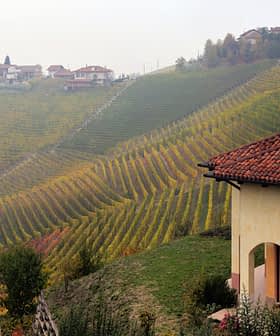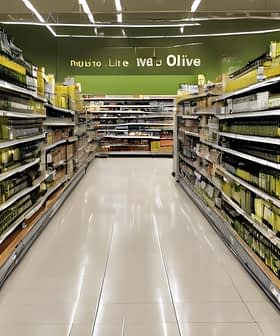Amid Growing Inflation, Italians Prioritize High-Quality Food Purchases
Italians intend to cope with the rising inflation by cutting other expenditures instead.
 Bologna, Italy
Bologna, Italy Food prices in Italy have increased by 6.2 percent in the past year, mainly due to global inflationary pressures. However, Italian families do not seem interested in limiting grocery spending.
According to the latest report from the Institute of Services for the Agricultural and Food Market (Ismea), Italians intend to cope with the rising inflation by cutting other expenditures instead. Among them, some will spend less at restaurants.
The new report showed that Italians consider the rising costs of raw materials and the energy crisis triggered by the Russian invasion of Ukraine as the main reasons behind inflation. Moreover, most of them believe inflation will continue to rise in the next three months.
See Also:As Most Consumers Find Ways to Cut Costs, Olive Oil Consumption Trends HigherAnalyzing the answers of a survey conducted on 3,000 families, Ismea determined that 20 percent of Italians are ready to cut spending on travel during their free time, 16 percent to reduce clothing purchases and 12 percent to slash spending on entertainment and outdoor activities.
“Only 2 percent are ready to cut on their shopping basket,” the report’s authors wrote.
Ismea data showed that Italian families plan to continue purchasing bread, milk and extra virgin olive oil in the same quantities as before. However, respondents were willing to cut back on purchases of eggs, fresh fruits, fish, cheeses, wine and frozen food.
Restaurants, which represent one of the most relevant channels for extra virgin olive oil sales, also are likely to be affected by Italians’ response to inflation.
Ismea noted how 24 percent of the respondents between 55 and 64 years of age and 30 percent of couples who have one or more small children would consider spending less on eating out.
Younger consumers seem more willing to slash clothing and travel expenditure. However, all respondents emphasized their focus on savings to safeguard their domestic food purchasing power.
Ismea emphasized how families continue to keep an eye on the health profile of the food they are buying in the current situation. Seventy percent of Italians surveyed said they would not give up buying Italian food even if that would lower costs.
See Also:Campaign in Crete Urges Hospitality Establishments to Choose Local Olive OilsAlmost half of the respondents said that they would not stop buying organic and sustainably-produced products and local food specialties protected with a Protected Designation of Origin (PDO) or Protected Geographical Indication (PGI) certification.
Although, Ismea warned that this data point varied significantly depending on the product in question.
For example, 66 percent of the buyers intend to explore the origins of the extra virgin olive oil they purchase. Similar levels of interest were also expressed by consumers about the origin of eggs, fish and meat.
Ismea noted how a significant number of Italian consumers choose their purchases based on the food’s organoleptic properties, especially for bread (44 percent), wine (37 percent) and extra virgin olive oil (20 percent).
While a growing percentage of buyers demonstrate that brand remains relevant when choosing pasta, frozen food or tomato sauce, the sustainability profile of products is also considered. Fourteen percent said they would look for those characteristics when buying eggs, white bread or meat.
Among the reactions to the current challenges posed by inflation, 68 percent of Italian families said they would avoid wasting food, while 47 percent will compare prices more meticulously.
Nine percent said they would purchase less food to continue buying high-quality items. Conversely, only 1 percent of respondents said they would buy lower quality foods to continue purchasing the same amount.








